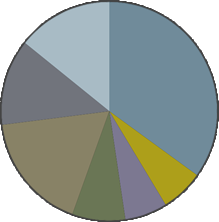The MPH in biostatistics is designed for students with strong quantitative skills and an interest in health sciences. BIOS VISIT EMORY PRESENTATION
Master of Public Health in Biostatistics
Skills
MPH students take coursework in biostatistics, epidemiology, and core courses from other public health disciplines. They also receive training and hands-on experience in study design, data management, data analysis, and statistical software—both at Rollins and in public health settings around the world. Students link their biostatistical and public health training through practical research projects.
Admission Requirements
In addition to the SOPHAS application, all applicants will need to submit the following materials when applying to Rollins.
- College transcripts
- The submission of GRE scores are optional for all candidates applying to MPH and MSPH programs for fall 2024 admission.
- Two letters of recommendation
- Personal statement
- Resume (optional)
Detailed information about each of these admission requirements can be found in Admissions.
Department Requirements
| Degree | Coursework Req | GPA | GRE Scores |
|---|---|---|---|
| MPH | Successful completion of multivariate calculus (Calculus III) with a grade of B+ or better. Students with prior, relevant course work may receive academic credit toward their degree program in biostatistics. | 3.5 or higher | 50th percentile or higher for all fields. GRE scores are waived if you have a PhD in a comparable field. |
MPH Degree Requirements
42 credit hours, successful completion of an applied practice experience and an integrative learning experience and a B- GPA or higher
Applied Practice Experience (APE)
An Applied Practice Experience (APE) is a unique opportunity for graduate students to integrate and apply practical skills and training learned through course work and prior experiences in a professional public health environment. All RSPH graduate students are required to complete an APE of at least 200 work hours in a public health agency, institution, or community under the supervision of site supervisor and the guidance of the Department. Although there are no credits associated with the APE requirement, the completion of the requirement is noted on the student’s transcript.
Integrative Learning Experience - Thesis
Examples of past thesis titles include:
Analyzing Durability and Efficacy of Long-lasting Insecticide-treated Bed Nets: A Longitudinal Monitoring Study at Western Kenya
Risk Factors for Pneumonia-Associated Infant Death in the United States, 2007-2010
What is the difference between an MPH and an MSPH in BIOS?
Both the MPH and the MSPH degrees offer comprehensive instructions in theory, methods, and practice in Biostatistics. The recommendation is to choose a degree program that best fits the applicant’s mathematical preparedness. The MSPH curriculum is designed for students who have prior experience in higher-level mathematics and statistics coursework. The MSPH curriculum places stronger emphasis on mathematical rigor and statistical theory, while the MPH curriculum places emphasis on statistical modeling and data analysis.
Successful MSPH applicants often have Bachelor’s degrees in statistics, mathematics, computer science, engineering, or related fields. Successful MPH applicants have demonstrated strong quantitative potential and often have Bachelor’s degree in biological sciences, social sciences, and public health. In some cases, applicants are initially admitted to the MPH degree and then transferred to the MSPH degree after completing additional mathematics coursework prior to enrollment.


